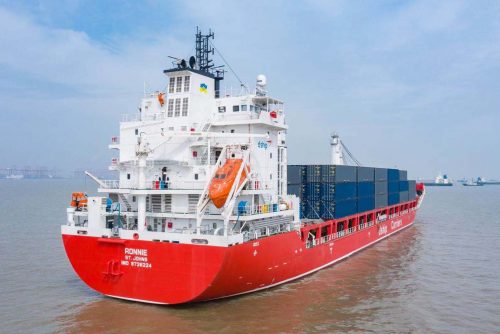Exploit the re-opening of borders to maximise export opportunities

Paul Kallee-Grover, chair of Liverpool China Partnership, comments on the challenges facing business and trade in 2022

Paul Kallee-Grover
The movement of people, goods and services remains the single most important issue for the North West economy in 2022.
The last 18 months have been a challenge for trade. COVID-19 and the uncertainty caused by travel restrictions continues to cause issues – we can all foster strong relationships with people we already have relationships with, but it is much more difficult to strengthen those relationships or create new ones when you cannot meet face-to-face on a regular basis.
Restrictions have also meant that we haven’t been able to welcome inbound delegations to show the city off at the same frequency.
Other challenges came with the Suez Canal obstacle earlier in 2021, and the ongoing fuel challenges and truck driver shortages which are slowing down the process for everyone.
We also continue to see existing shipping lines coming into the port of Liverpool from China bringing in significant goods for the retail sector, but then the ships tend to go back to China empty. This is a missed opportunity for local business.
This has all highlighted just how important logistics are for the whole economy, certainly here in Liverpool City Region where we have identified China as being its third most important market, which is now being echoed nationally as well.
Less than 10% of UK businesses currently export, yet exporting offers many opportunities for businesses to compete and grow.
Companies that trade internationally become more productive, more innovative and diversify their risk profile – and exporting can be a significant driver of growth.
As an organisation, Liverpool China Partnership has had to evolve to see where these challenges are and to be innovative with the solution, with a renewed focus on the growing logistics network within the city region. We are essentially about business, friendships and relationships – and we will continue to utilise our expertise and networks to facilitate purpose-driven relationships between China and the UK on behalf of our members, across the public and private sector.
Liverpool China Partnership was established off the back of the International Festival for Business in 2014, set up to create and facilitate business opportunities between the two nations and to maximise the potential for incoming Chinese investment.

A delegation from Liverpool City Region to Shanghai in 2019, organised by Liverpool City Council in partnership with the LCP, also secured in excess of £140m-worth of investment for the city region alone.
Most recently we were proud to welcome three new members to the organisation – global firm Allseas Global Logistics, The University of Liverpool Confucius Institute (LCI) and The Liverpool Institute of Performing Arts (LIPA).
Allseas Global Logistics currently operates several containerised and breakbulk cargo routes from Shanghai, Shenzhen and Ningbo in China to Liverpool, and is already bringing huge logistical benefits to existing LCP members as well as the wider Liverpool City Region business community.
Looking ahead to 2022, I am confident that the city region can meet the challenges it faces, but the unlocking of travel will be key to this. We are already starting to see very early discussions around events and the movement of people, and businesses connecting and working together which is a huge positive.
Investment in transport and infrastructure must also continue at a pace if we are to capitalise on the huge opportunities for businesses across the region created by Liverpool’s newly Freeport status.
Another priority of the partnership will be a focus on the pharmaceutical industry and building on Liverpool’s reputation as a world leader in this space, with The Pandemic Institute, the Royal College of Physicians and our universities leading the way.
We also need to recognise and harness the potential of gaming and digital technologies across the city region.
If we are to take away one key lesson from the pandemic, it is that communication and digital technologies are the key to fostering engagement across borders.








